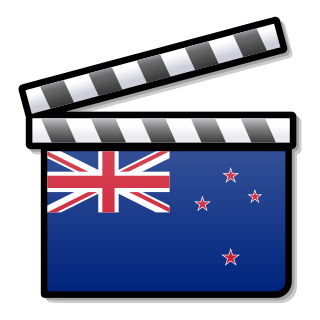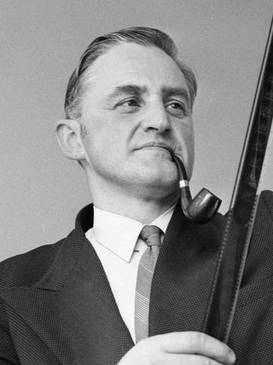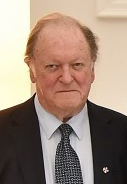Related Research Articles

New Zealand cinema can refer to films made by New Zealand-based production companies in New Zealand. However, it may also refer to films made about New Zealand by filmmakers from other countries. Due to the comparatively small size of its film industry, New Zealand produces many films that are co-financed by overseas companies.

A newsreel is a form of short documentary film, containing news stories and items of topical interest, that was prevalent between the 1910s and the mid 1970s. Typically presented in a cinema, newsreels were a source of current affairs, information, and entertainment for millions of moviegoers. Newsreels were typically exhibited preceding a feature film, but there were also dedicated newsreel theaters in many major cities in the 1930s and ’40s, and some large city cinemas also included a smaller theaterette where newsreels were screened continuously throughout the day.

Wētā Workshop is a special effects and prop company as well as video game developer based in Miramar, Wellington, in New Zealand, that produces effects for television and film. The company is named after the New Zealand wētā, one of the world's largest insects.

Leonard Charles Huia Lye was a New Zealand artist known primarily for his experimental films and kinetic sculpture. His films are held in archives including the New Zealand Film Archive, British Film Institute, Museum of Modern Art in New York City, and the Pacific Film Archive at University of California, Berkeley. Lye's sculptures are found in the collections of the Whitney Museum of American Art, the Art Institute of Chicago, the Albright-Knox Art Gallery and the Berkeley Art Museum. Although he became a naturalized citizen of the United States in 1950, much of his work went to New Zealand after his death, where it is housed at the Govett-Brewster Art Gallery in New Plymouth. He is best remembered for his 1933 short film "experimental Animation 1933," better known as "The Peanut Vendor."
Movietone News was a newsreel that ran from 1928 to 1963 in the United States. Under the name British Movietone News, it also ran in the United Kingdom from 1929 to 1986, in France also produced by Fox-Europa, in Spain in the early 1930s as Noticiario Fox Movietone before being replaced by No-Do, in Australia and New Zealand until 1970, and Germany as Fox Tönende Wochenschau. An Indian version called Indian Movietone News ran in 1942 and 1943 before getting replaced by Indian News Parade.
John Dempsey O'Shea was a New Zealand independent filmmaker; he was a director, producer, writer and actor. He produced the only three feature films that were made in New Zealand between 1940 and 1970.
Terence Bayler was a New Zealand film, television, and stage actor. His most memorable roles were in Monty Python's Life of Brian (1979) and Harry Potter and the Philosopher's Stone (2001).

Cinesound Productions Pty Ltd was an Australian feature film production company. Established in June 1931, Cinesound developed out of a group of companies centred on Greater Union Theatres that covered all facets of the film process, from production to distribution and exhibition. Cinesound Productions established a film studio as a subsidiary of Greater Union Theatres Pty Ltd based on the Hollywood model. The first production was On Our Selection (1932), which was an enormous financial success.
Broken Barrier is a 1952 New Zealand film. It was directed and produced by John O'Shea (director) and Roger Mirams, and written by O'Shea. It starred Kay Ngarimu and Terence Bayler, and also featured Myra Hapi Smith, Bill Merito and George Ormond.

Gordon Holden Mirams was the fourth Chief Censor of New Zealand. He was the son of Leslie Haywood Mirams and Mary Elvire Webb. He married Ruth Taylor in Christchurch on 23 November 1932. They had three daughters and one son.
John Feeney was a New Zealand-born director, photographer and writer.
Barry Ronald Barclay, MNZM was a New Zealand filmmaker and writer of Māori and Pākehā (European) descent.

Sony Music Studios was an American music recording and mastering facility in New York City. The five-story building was a music and broadcasting complex located at 460 W. 54th Street, at 10th Avenue, in the Hell's Kitchen section of Manhattan. It opened in 1993 and closed in August 2007.
Roger Eastgate Holden Mirams was a New Zealand-born film producer and director, whose career extended over 60 years. Mirams co-directed and photographed Broken Barrier, the only local dramatic feature film made in New Zealand in the 1950s, and later won a reputation for the children's television series he produced in Australia.
Lee Robinson was an Australian producer, director and screenwriter who was Australia's most prolific filmmaker of the 1950s and part of the creative team that produced the late 1960s international hit television series Skippy the Bush Kangaroo.
John D. Craig (1903–1997) was an American businessman, writer, soldier, diver, Hollywood stunt man, film producer, and television host. He worked in the commercial surface-supplied diving industry from the 1930s on, and filmed aerial combat over Europe during World War II. He is best known for using film and television to show the United States public the beauties and dangers of Earth's underwater worlds.

The Coastwatchers is a docudrama television film about coastwatchers made in 1959 by producer Roger Mirams for Pacific Films. It starred Ken Goodlet and Kevin Colson and was written by John Sherman and directed by Mirams.
Joseph Musaphia is a New Zealand writer and actor who was born in London.

Nina Nawalowalo is a New Zealand theatre director and co-founder of the contemporary Pacific theatre company The Conch. She is known for directing the stage plays Vula and The White Guitar. The first film she directed A Boy Called Piano - The Story of Fa'amoana John Luafutu (2021) won 2022 Montreal Independent Film Festival Best Feature Documentary.

William Newton Sheat was a New Zealand lawyer and arts advocate whose input was instrumental in many arts organisations including as a founding member of the New Zealand Film Commission, Creative New Zealand and Downstage Theatre.
References
- Don’t let it get you: memories - documents by John O’Shea (1999, Victoria University Press, Wellington) ISBN 0-86473-356-9
- New Zealand Business Who's Who (1960 & 1969–70)